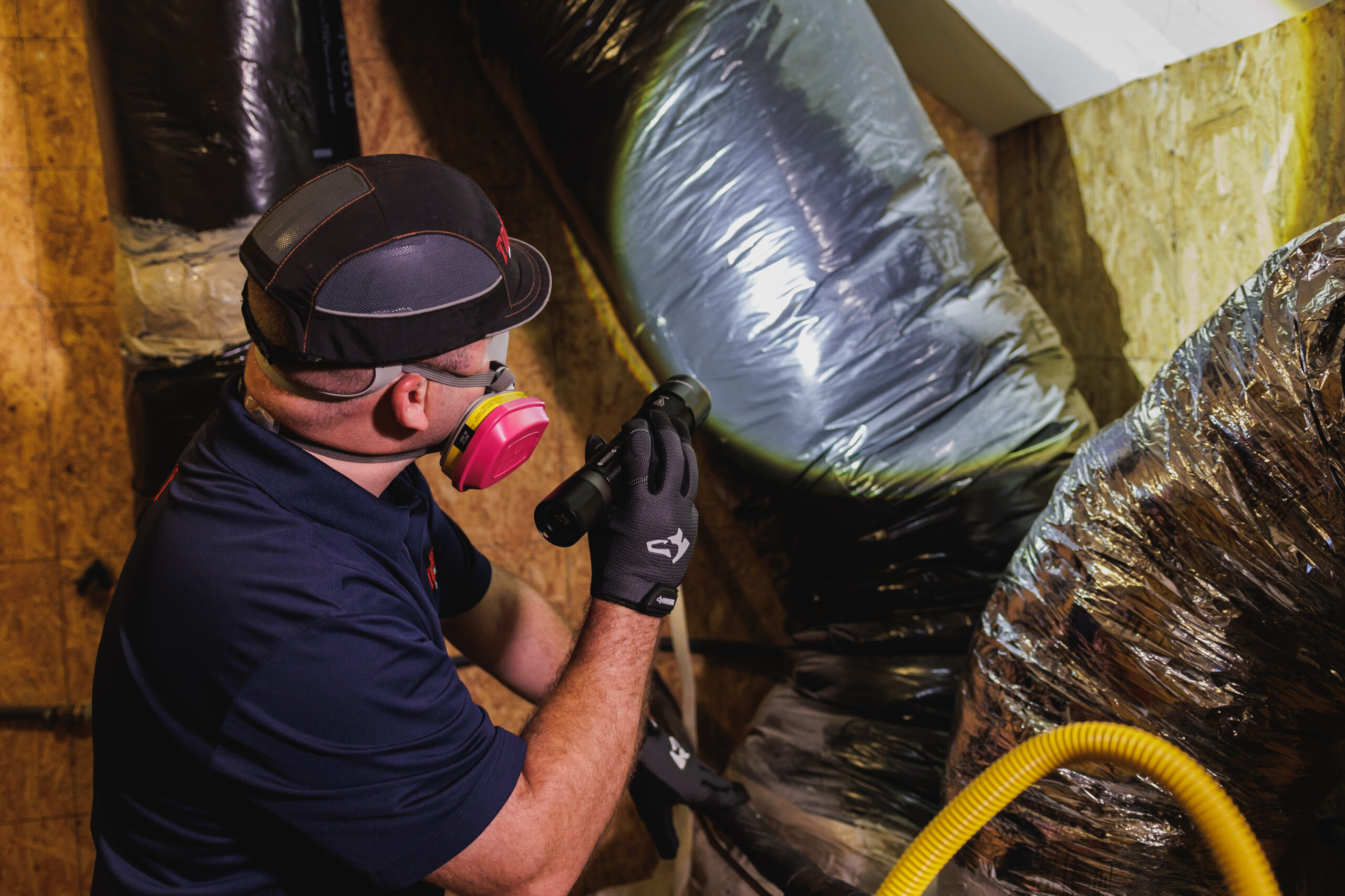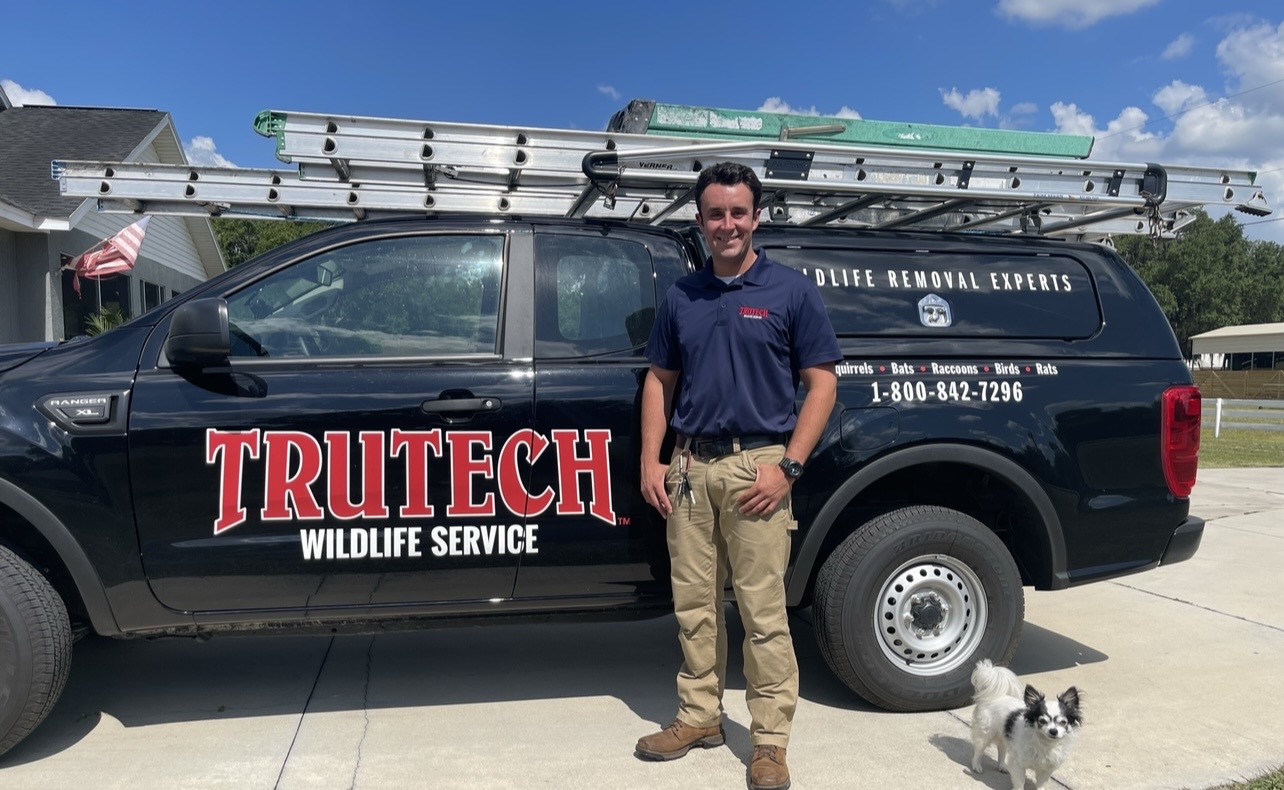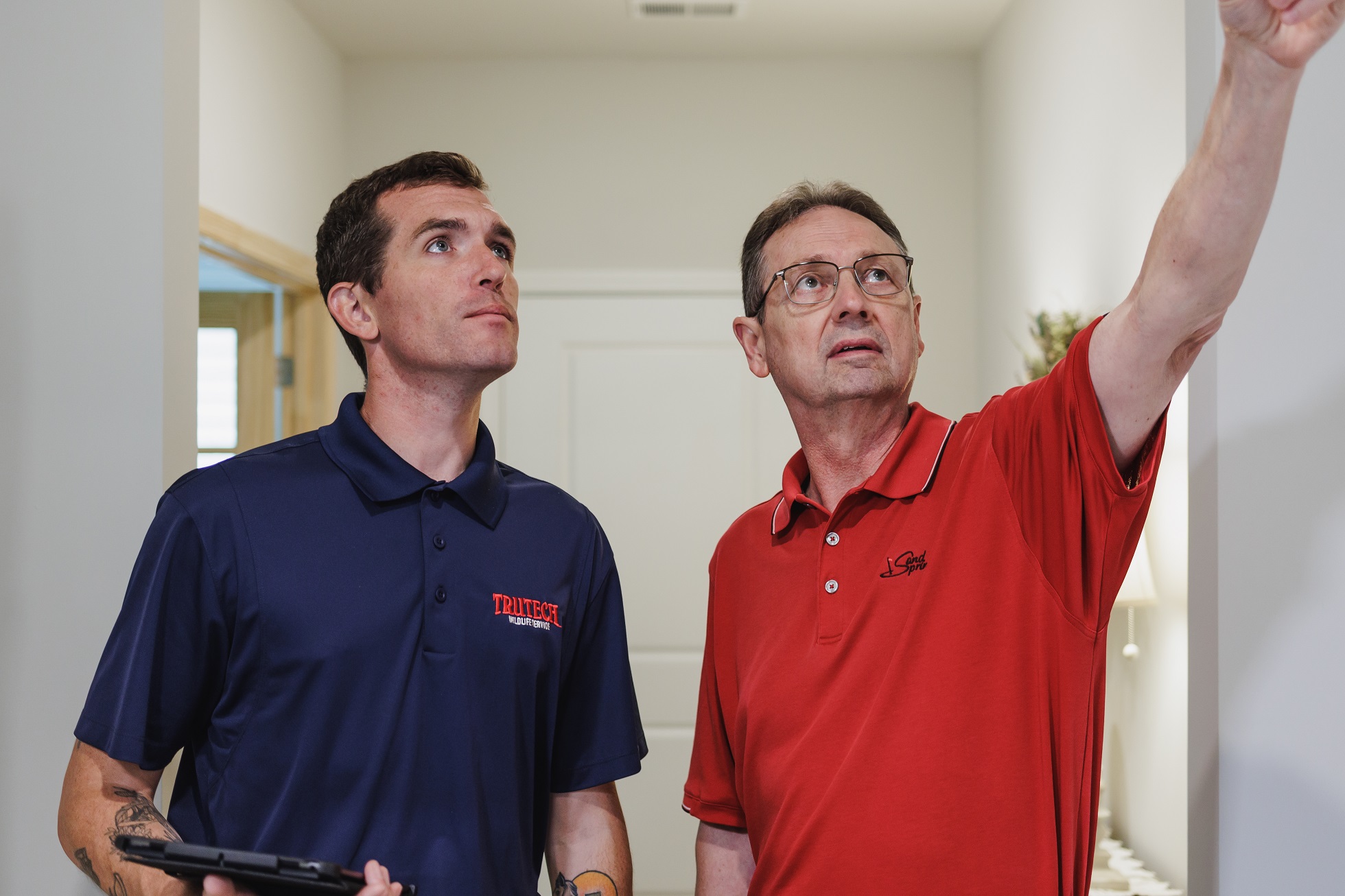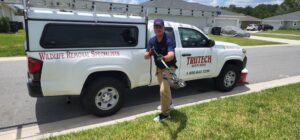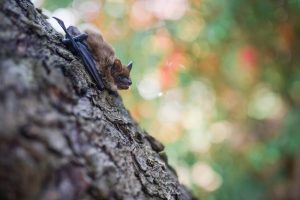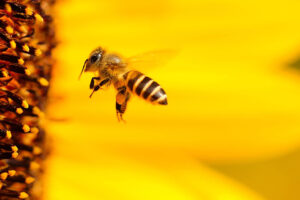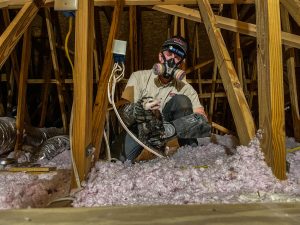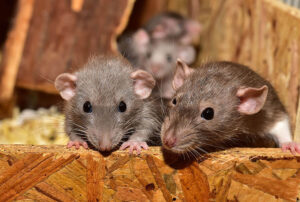Pest animals in Tampa seeking shelter in attics is a common issue faced by homeowners. Unexpected noises from the attic are a sure sign that you have unwelcome guests in your home. Whether you hear chirping or scurrying, there are possible critters like raccoons, squirrels, and bats.
These pests often seek out attics for nesting, protection from predators, and to raise their young. And attics are usually close to food sources.
Animals in attics should not be ignored! Not only do they create a disturbance, but also damage your home. Below are some examples of damages caused by animals in attics in Tampa-St. Pete.
Dens and Nest
Wildlife will create dens and nests with the available materials in the nooks and crannies of your attic space. Dens and nests are often made using your insulation or HVAC ductwork, but animals can also use cardboard boxes, clothe, paper, and anything available. Dens and nests can reduce the energy efficiency of your home and destroy stored items.
Droppings
Feces and urine from any animal infestation not only create terrible odors but also cause structural damage to your home. Animal droppings will contaminate the insulation and reduce the r-value. Feces and urine can rot and contaminate wood, and ruin stored personal items in the attic. Animal feces in the attic may also lead to stained ceilings and drywall. and terrible odors.
Ectoparasites
Mammals like raccoons, squirrels, mice, and other animals carry ectoparasites. After the animals have been removed, these pests will look for new hosts. Bat bugs, mites, ticks, and fleas are a few of the ectoparasites that could be left in your attic. Mice in the attic, bats in the attic, and raccoons in the attic are notorious for bringing these pests into your home.
Tampa Raccoon Damage in Attic
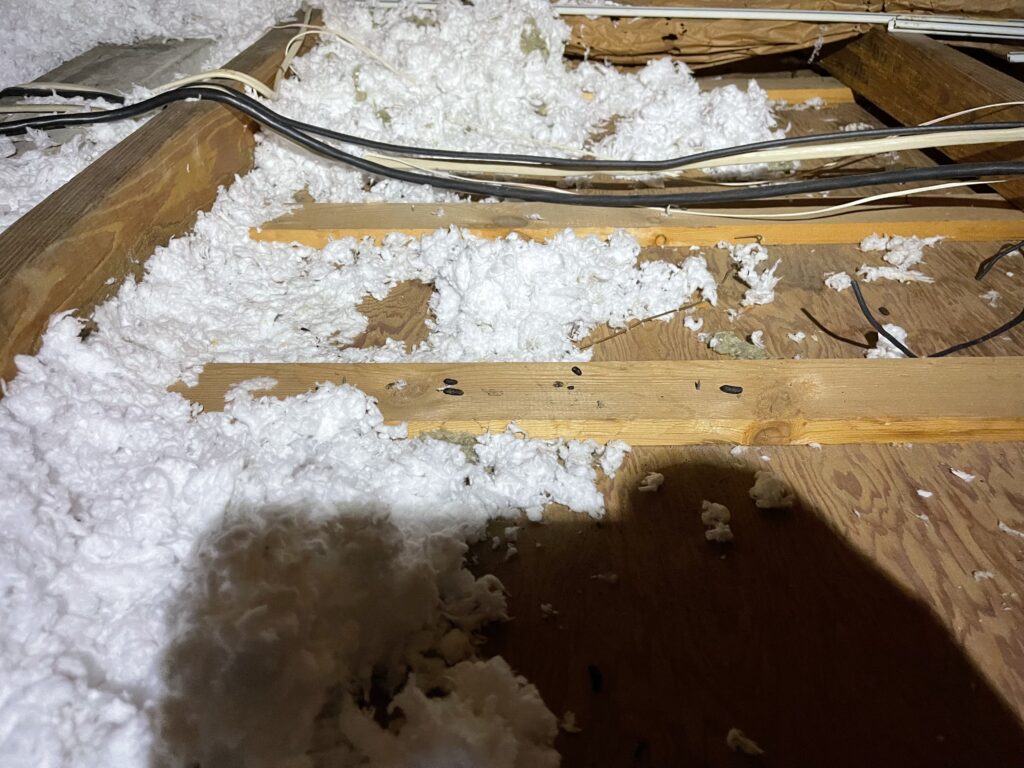
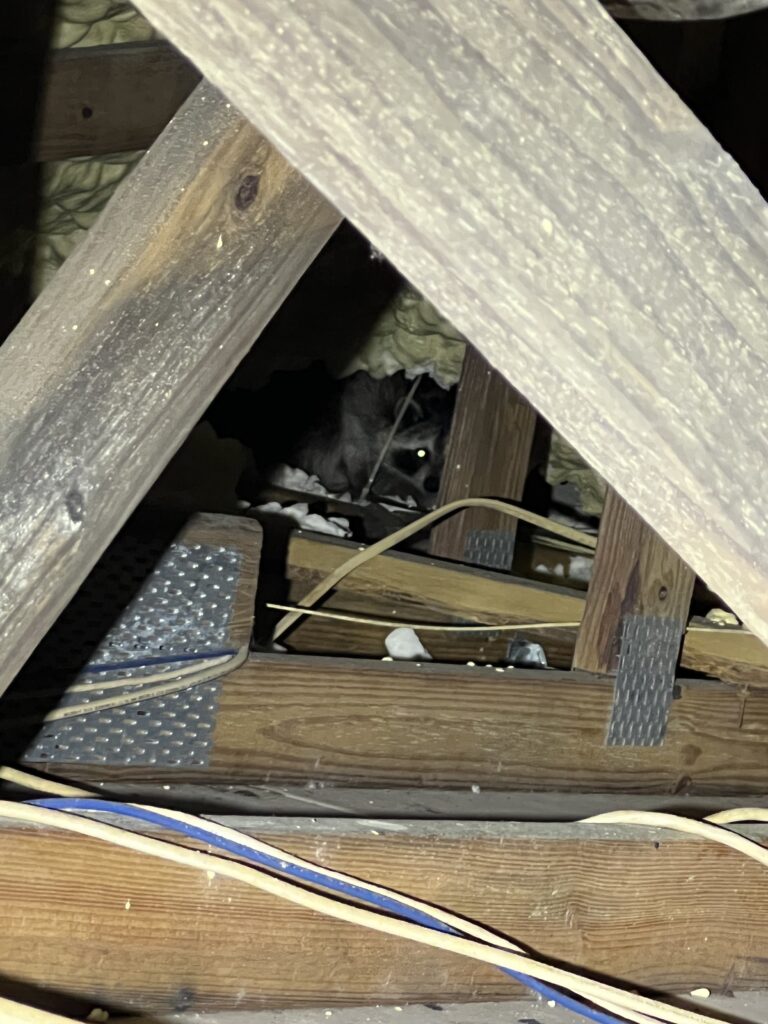
Generally, damage caused by Tampa raccoons in the attic includes building dens and creating latrine sites. Both activities destroy the attic’s insulation.
Mother raccoons enter attics because it is a safe place to give birth. The females will use insulation and other materials to create a nest for the baby raccoons.
When they den in attics, raccoons create separate latrine sites. They consistently return to these locations to defecate and urinate. Raccoon droppings can spread raccoon roundworms (Baylisascaris procyonis), and raccoon urine can spread leptospirosis. Attempting to clean up after a raccoon can expose you to both diseases.
Rat Damage in Attic
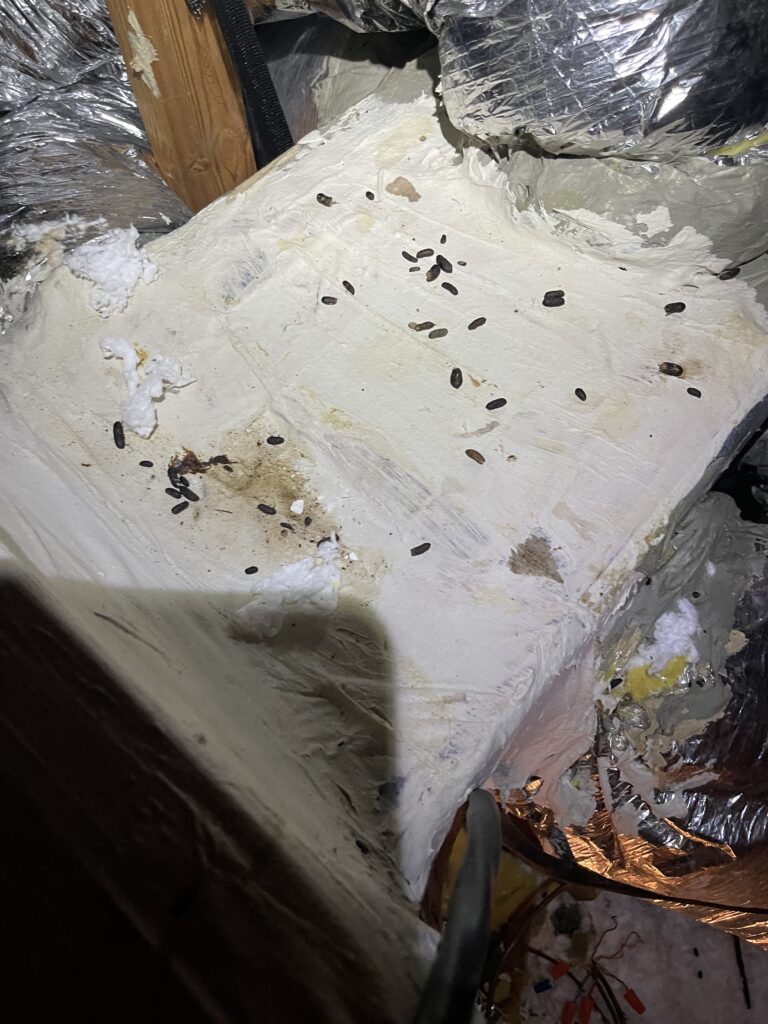
One of the most popular places in your Tampa home for rats to live is in your attic. It can be hard to detect a rodent infestation in your attic if you don’t frequent there often. And since rodents can be quite small, the noises they make will be minimal and hard to detect. One of the best ways to keep rodents from invading your attic is to be proactive in keeping them out.
After a rat enters a home, it searches for food, and as they search, they spread urine and feces throughout the house. Rats travel the same path repeatedly and will use their droppings and urine to mark a safe path.
If you find a rat nest, do not disturb it. Rats can become aggressive to protect the nest. Removing a nest won’t drive the rats out; they are likely to build a new one. Finally, rat nests will be contaminated by rat droppings and rat urine.
Squirrel Nests in Tampa Attic
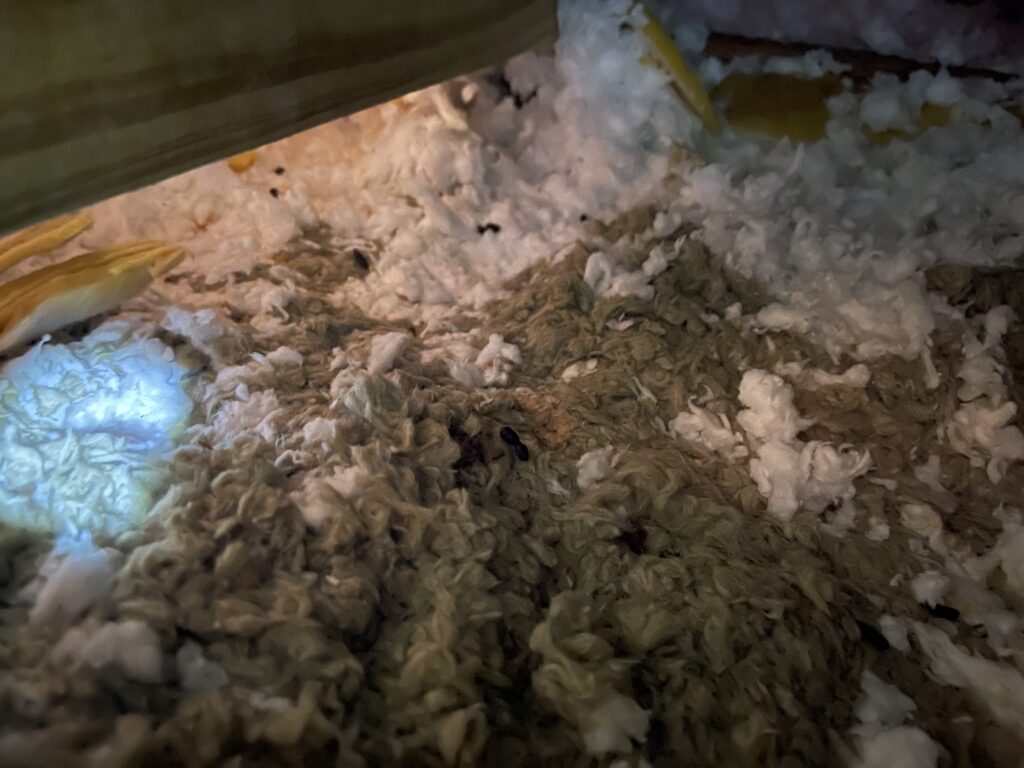
Squirrels are well known for nesting in attics, providing a safe hideaway for squirrels to raise their young. The inside of an attic is also full of things for them to nibble and sharpen their ever-growing teeth on, like wood and insulation.
When a squirrel chews the insulation on electrical wiring, the possibility of a house fire arises. Squirrels enter attics through crevices, gaps, and cracks in soffits, fascia boards, and eaves, or open vents or broken shingles in the roof.
Once squirrels reach the attic, they have free reign of the house.
Tampa Bats in Attic
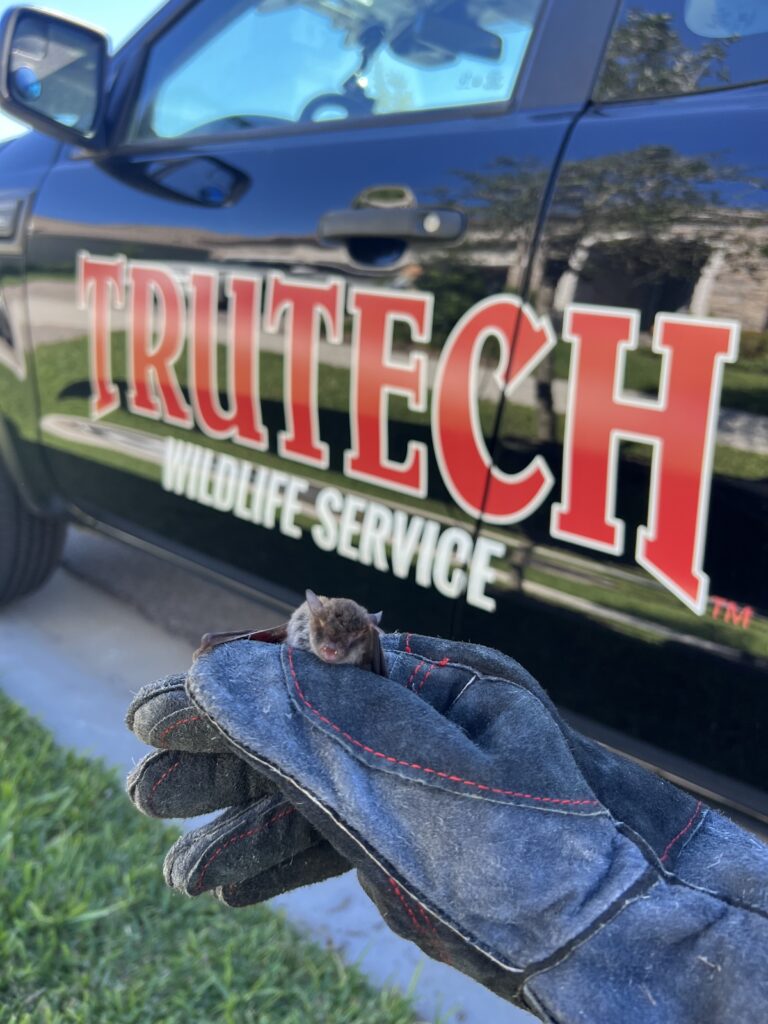
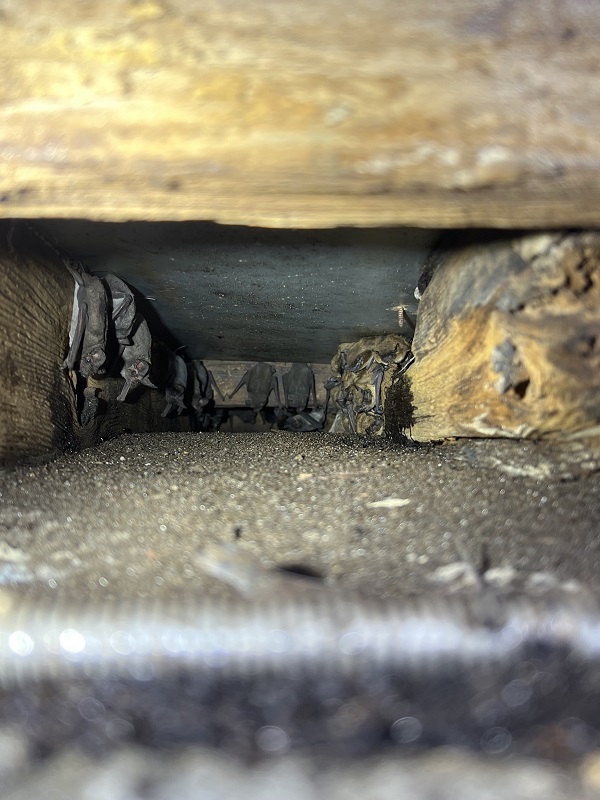
The most common bats in attics in Tampa are the Brazilian Free Tail bat. People usually hear bat sounds like chirping, but also smell the bat guano. The most common places to find roosting bats is in attics, under shingles or eaves, and inside wall voids.
Collections of bat guano (feces) and urine in areas where the animals roost can lead to structural issues and the possible collapse of ceilings caused by the corrosive nature of their waste. Bat droppings are also the catalyst for two fungal diseases — histoplasmosis and cryptococcosis. Both of these are fungal diseases originating from infectious spores in the animals’ droppings. If their fecal matter is disturbed, the chance for disease transmission is great, as airborne spores can be inhaled into homeowners’ lungs.
Animal in Attic Removal in Tampa
If an animal has been living in your attic, it has damaged it. Damage can include contaminated insulation, destroyed insulation, or damaged air ducts. An animal in your attic also introduces health risks like histoplasmosis or leptospirosis.
The Trutech Tampa team specializes in returning your attic to pristine condition after a nuisance animal infestation. Our local technicians have the training and experience to safely remove an animal, repair the damage, and install exclusions for long-term, nontoxic pest control.
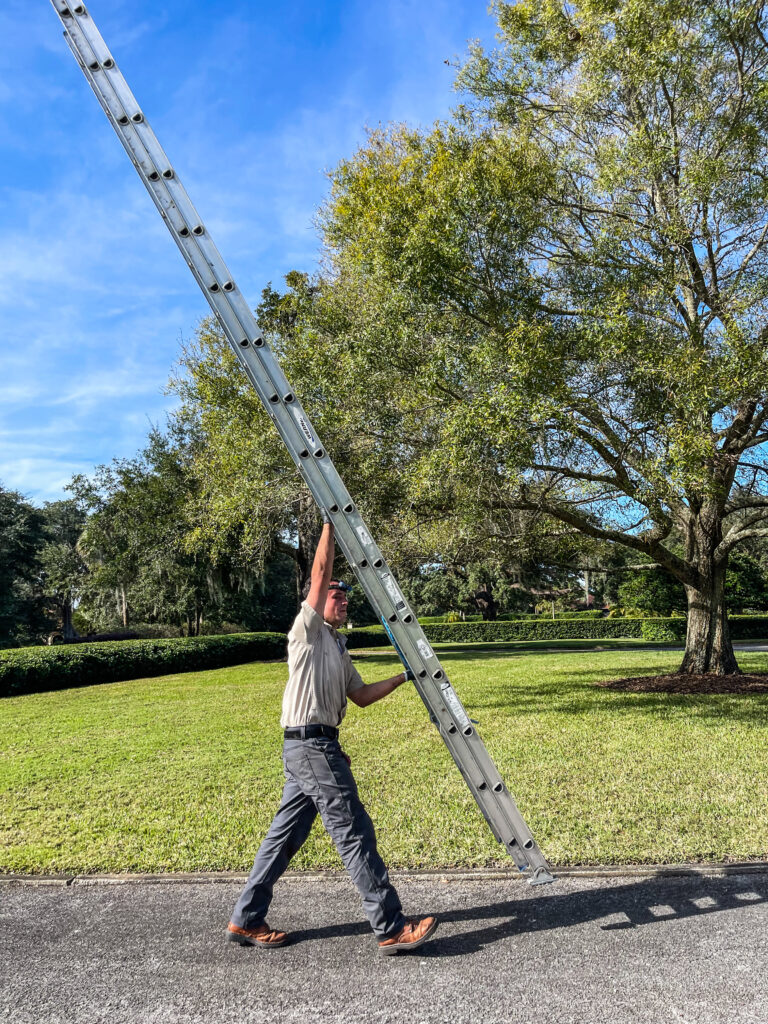
Areas We Serve in Tampa Bay
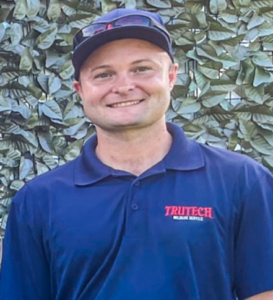
Tom West, ACE
Tom brings over 10 years of pest control and management experience to our Tampa team. Holding a certificate in entomology as well as a Certified Pest Control Operator license, Tom is eager to provide the highest quality of wildlife removal services to the Tampa community. In his free time, Tom can be found fishing or watching football or baseball.


